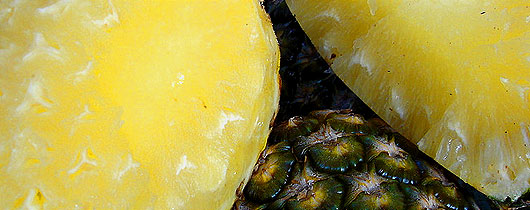
global competitiveness in the hospitality industrydivi scalp serum sephora
E-Rev Tour Res (ERTR) 17(3):40742517. The link between tourism and climate is important for people planning holidays and other leisure travel. Hotels must involve their consumers in related environmental issues and actions. Application of the IoT in the hospitality sector allows interactions with tourists and collection of real-time tourist data. Industry 4.0 technologies can be interconnected using horizontal, vertical, and end-to-end system integration tools along the value chain [11]. As such, being one of the most promising sectors in Portugal, it requires strategies that can increment the countrys economic growth. https://doi.org/10.1108/S2051-503020160000019001, IPCC (2007) Climate change 2007: impacts, adaptation and vulnerability. Tourism contributes to GHG emissions through transport, accommodation [89], food production and consumption [90], and other activities. At the same time, Industry 4.0 technologies help to reduce carbon emissions and are less damaging to the environment. In this context, it has been suggested that VR could substitute for actual travel [82, 126] and would contribute significantly to sustainability [127] by providing low cost and environmentally friendly ways of traveling [38]. Scope of Hospitality Industry is explained and, The Heart of Hospitality: Great Hotel and Restaurant Leaders Share Their, Communication in Tourism and Hospitality: Meeting the World in the, Do not sell or share my personal information. Size, however, is very rarely a relevant competitive dimension. DTTL and Deloitte NSE LLP do not provide services to clients. Competitive advantages theory proposes a dynamic, mainly microeconomic approach which highlights the fact that the efficient specialization of national industry depends, mainly, on the competitive capacity of firms, both on the national and international market, on the speed with which they assimilate technical prog. The more complex issues are those related to governance and behavior. Industry 4.0 could cause significant economic and social transformations which need to be taken into account. These venues most of the time provided only shelter but not for money. Attempts by many African governments to implement institutional reforms aimed at developing and implementing inclusive tourism-related policies have met with mitigated success. 2, pp. https://doi.org/10.1080/19338240903352776, Leal Filho W, Bonecke J, Speilmann H, Azeiteiro UM, Alves F, Lopes de Carvalho M, Nagy GJ (2018) Climate change and health: an analysis of causal relations on the spread of vector-borne diseases in Brazil. Provided by the Springer Nature SharedIt content-sharing initiative, Hospitality Industry 4.0 and Climate Change, https://doi.org/10.1007/s43615-021-00141-x, How can Industry 4.0 technologies and circular economy help companies and researchers collaborate and accelerate the transition to strong sustainability? A conditional mixed-process approach. Ecol Econ 158:5164, Fritzsche K, Niehoff S, Beier G (2018) Industry 4.0 and climate changeexploring the science-policy gap. Her current research interests include Tourism Research, Sustainable Tourism, Tourism and Economic Development, Economic Analysis of Investment Projects in Tourism, Competitiveness in the Hospitality and Tourism Industry, Human Capital in Tourism, Health and wellness Tourism and Transport Economics. Energy Environ. J Eng 2020:8090521, Madsen D (2019) The emergence and rise of Industry 4.0 viewed through the lens of management fashion theory. In: Climate Change and the 2030 Corporate Agenda for Sustainable Development. Short and longer term trading performance have become near impossible to predict, given constantly changing government restrictions, in response to a virus whose behaviour is still being understood. We thus begin by briefly outlining this concept, before addressing specifically tourism and hospitality industry resilience, within the context of Covid-19 and other crises. Conversely, hoteliers who wait and do not leverage opportunities will find themselves in a difficult position when the industry recovers. Results suggest there will be more than one competitive dimension to distinguish between rivals. On average, some 30% of energy savings could be achieved through implementation of intelligent automation technologies in buildings [102]. https://doi.org/10.1109/MCE.2017.2684981, Yun M, Yuxin B (2010) Research on the architecture and key technology of internet of things (IoT) applied on smart grid. History and evolution of Hospitality Industry are fully discussed. They include protection of coastlines and provision of artificial snow to allow continued tourism to ski resorts experiencing less snowfall during the skiing season [26, 98]. Firstly, we fill a research gap by providing both theoretical and empirical supports for the links among knowledge management strategy, based on knowledge source (internal, external) and type (tacit, explicit) and firm competitiveness in one integrated framework. Use of technologies to reduce food waste would increase water and energy efficiency. PDF Competitiveness in Hospitality Industry: Romanian Style Sustainability and Competitiveness in the Hospitality Industry focuses on complex issues from a hotel industry perspective. https://doi.org/10.1016/j.tourman.2011.03.015, De Freitas Melo D, De Souza Lage E, Rocha AV, De Jesus Cardoso B (2017) Improving the consumption and water heating efficiency in smart buildings. Thus, the knowledge of both the organization and its employees is crucial to follow the markets evolution and the shifts in clients needs. Inf Technol Tour: 112. Equal contribution of authors in all stages. In S. Teixeira & J. Ferreira (Eds. Google Scholar, Boonwichai S, Shrestha S, Babel MS, Weesakul S, Datta A (2018) Climate change impacts on irrigation water requirement, crop water productivity and rice yield in the Songkhram River Basin, Thailand. According to the World Bank, the global economy has grown at a pace of more than three percent per year up until the global pandemic hit in 2019/20. The research interest is related to finding out the mainfactors of competitiveness in this field. However, recently some researchers have started to examine the tourism and hospitality competitiveness, both conceptually and empirically. Multilevel Approach to Competitiveness in the Global Tourism Industry, edited by Srgio Jesus Teixeira and Joo Matos Ferreira, IGI Global, 2020, . PDF Adapting to Uncertainty The Global Hotel Industry - World Economic Forum The future of travel and tourism as per 4 sector leaders | World https://doi.org/10.1007/978-3-030-79713-3_6, Ben Youssef A, Zeqiri A, Dedaj B (2020) Short and long run effects of COVID-19 on the hospitality industry and the potential effects on jet fuel markets. Academia.edu uses cookies to personalize content, tailor ads and improve the user experience. In Climatic Change. The paper takes the form of a systematic literature review to examine the main pillars of Industry 4.0 in the hospitality industry and discuss how these technologies could help combat climate change. Global competition in the hospitality industry has led to increasing pressure on profit levels. However, a literature review also has some limitations such as the heterogeneity in the studies selected, possible bias from single studies, and possible publication bias [49], The literature on hospitality Industry 4.0 and climate change is very heterogeneous. The factors. March, 2327, Kjellstrom T, Holmer I, Lemke B (2009) Workplace heat stress, health and productivityan increasing challenge for low and middle-income countries during climate change. An engine to embrace and harness disruptive change. Manuf Lett. Int J Eng Technol (UAE). In this context, Tourism 4.0 allows a richer tourist experience [55]. This study aims to analyse the key driving factors for the medical . Food, energy, and water are linked, and the more food that is produced and prepared, the more energy and water is consumed. Int J Hosp Manag 71(April):4150. Process Saf Environ Protect. https://doi.org/10.1177/1467358415627301, Ivanov S, Webster C, Berezina K (2017) Adoption of robots and service automation by tourism and hospitality companies. Citizens were focused more on ecological and sustainability issues [34]. 11(16):4371.https://doi.org/10.3390/su11164371, Kansakar P, Munir A, Shabani N (2019) Technology in the hospitality industry: prospects and challenges. There is stream of work which examines the links between the hospitality industry and the various pillars of Industry 4.0 such as the IoT [36, 43, 62, 63], VR [37, 38, 64,62,63,67], AR [37, 40, 68], big data [42, 43], and AI and robotics [39, 41]. Academia.edu uses cookies to personalize content, tailor ads and improve the user experience. The previous work treats these issues as separate topics; we suggest that they are crucial for reducing the carbon footprint of the hospitality industry. We plan to conduct quantitative analysis to validate our proposed model and apply it to different countries to allow its components to be analyzed in more depth. These findings should be useful for stakeholders and policymakers in the hospitality industry. https://doi.org/10.1016/j.jtrangeo.2009.09.003, Scott D, Gssling S, Hall CM (2012) International tourism and climate change. Technol Forecast Soc Chang 141:341351. Popular destinations are focusing on virtual experiences enabling people to visit various attractions worldwide from their homes. Worldw Hosp Tour Themes 10(6):652661. The present study is based on the results of research conducted in 2007 by a group of researchers in the Tourism-Services Department of the Commerce Faculty in ASE Bucharest. J Sustain Tour 14(4):339348. The rest of this paper is organized as follows: Section 2 presents the theoretical framework and the development of the research model. The relationship between climate change and tourism has been the topic of debate for many years(Fig. Discuss the nature of the hospitality industry; Name the characteristics of the hospitality industry; Enumerate the scope of the hospitality industry; 1. Available at: http://www.wrap.org.uk/sites/files/wrap/Overview of Waste in the UK Hospitality and Food Service Sector FINAL.pdf. https://doi.org/10.1108/IJCHM-09-2016-0520, Horvth D, Szab RZ (2019) Driving forces and barriers of Industry 4.0: do multinational and small and medium-sized companies have equal opportunities? Starling evidence from G7 Countries. Increased use of Industry 4.0 technologies could result in less travel and transport. Deloittes European Hospitality Sentiment Survey showed that 90% of respondents expect disruption to continue until mid-2021, with 51% of respondents expecting recovery to 2019 levels to happen only by 2023 at the earliest. Sustainability 10(12):4511. https://doi.org/10.3390/su10124511, Stock T, Obenaus M, Kunz S, Kohl H (2018) Industry 4.0 as enabler for a sustainable development: a qualitative assessment of its ecological and social potential. The many academic areas covered in this publication include, but are not limited to: Vnia Costa has a PhD in Economics from the University of Vigo, with the thesis Regional Portuguese Airports, Local Economy and Tourism Development, a MSc in Industrial Economics and Business from University of Minho and a degree in Economics from University of Minho. Emissions from oil used for transport accounted for over 50% of the overall decrease in emissions in 2020. Current business models must be redesigned, and the business as usual model must be replaced by smart, sustainable, and environmentally friendly business models. The weather affects destination choices and tourist satisfaction [95]. We will prove that Emirates is the most innovative and the fastest airlines growing in the world since they are 25 years old and Lufthansa 86 years old. J Tour Herit Stud 7(1):5878, Bhm A, Follari M, Hewett A, Jones S, Kemp N, Meares D, Pearce D, Van Cauter K (2004) Vision 2020; forecasting international student mobility; a UK perspective. Economic Sciences (AUOES), Tom XXIII -2014. Tourism accounts for 5% of global carbon emissions [25]. Whether developing skills or navigating business challenges, CFO Advisory can support. Third, the paper contributes by proposing a future research agenda and directions for further quantitative research. http://www.fao.org/3/i3347e/i3347e.pdf. Technol Forecast Soc Chang. Our paper contributes by analyzing how the application of these technologies in the hospitality industry could result in increased efficiency of use of resources and adoption of environmentally friendly practices. Section 3 describes the methodology used in the work. To leverage profits hotels increasingly are forced to evaluate their operational performance. A control center can provide information related to lighting including energy consumption per light fixture [44]. The present study is based on the results of research conducted in 2007 by a group of researchers in the Tourism-Services Department of the Commerce Faculty in ASE Bucharest. You may be able to access this content by logging in via your Emerald profile. competitiveness and hospitality industry index, as well as the main methods of quantifying the quality of services in this industry, with a focus on the SERVQUAL method. Telematics Inform. Social login not available on Microsoft Edge browser at this time. ([52], p. 343) define Industry 4.0 as a new industrial maturity stage of product firms, based on the connectivity provided by the industrial Internet of things, where the companies products and process are interconnected and integrated to achieve higher value for both customers and the companies internal processes.. Despite the . Ben Youssef, A., Zeqiri, A. Hospitality Industry 4.0 and Climate Change. "Competitiveness of the Hotel Industry: A Knowledge Management Approach." Carlos Costa is Full Professor (Professor Catedrtico), Head of the Department of Economics, Management Industrial Engineering and Tourism (DEGEIT) of the University of Aveiro. Along with the overall economy, the global hospitality industry has enjoyed a spurt of massive growth over the last decade since the end of the financial crisis. Section 4 presents the results. https://doi.org/10.1109/ICCSP.2016.7754501, Ahemed R, Amjad M (2019) Automated water management system (WMS). Building distinct venues for travelers to rest starts with the pilgrimage. The IoT is offering new perspectives on smart buildings and more efficient use of resources [107]. According to Rajesh Desai et al. Implementation of technologies in the hospitality industry will result in more efficient use of the resources which would contribute directly to sustainability. Do We Really hate our jobs? https://doi.org/10.1007/s13163-011-0090-7, Hall CM, Amelung B, Cohen S, Eijgelaar E, Gssling S, Higham J, Leemans R, Peeters P, Ram Y, Scott D (2015) On climate change skepticism and denial in tourism. There are two important climate change strategies in the tourism industry: adaptation and mitigation [20, 96]. How will you become more resilient? However, we would suggest that the potential improvements enabled by technology will be greater than the potential negative effects of tourist behavior. There is a stream of work investigating the extent to which Industry 4.0 can tackle climate change [11,12,13,14,15]. Deloitte LLP is a limited liability partnership registered in England and Wales with registered number OC303675 and its registered office at 1 New Street Square, London EC4A 3HQ, United Kingdom. Accessed 10 Aug2021, FAO (2013) Food wastage footprint: impacts on natural resources. This involves the collection, storage, and use of data in appropriate ways and their protection from threats. The present study should be considered a preliminary qualitative exploration of the role of Industry 4.0 in the hospitality sector in relation to climate change. Industry 4.0 is affecting almost every sector of the economy, including the hospitality industry. For other insights and more information about our services, visit out Transportation, Hospitality & Services website. Tour Hosp Res 17(4):372383. https://doi.org/10.1016/j.enbuild.2016.03.059, Costa A, Keane MM, Torrens JI, Corry E (2013) Building operation and energy performance: monitoring, analysis and optimisation toolkit. https://doi.org/10.1007/s11356-020-09869-9, Article The objective of a systematic review is to formulate a well-defined question and provide a quantitative and qualitative analysis of the relevant evidence, followed (or not) by a meta-analysis [47]. The IoT involves interconnectivity among physical devices such as sensors, actuators, RFID tags, laptops, and mobile phones, and their communication through networks or the Internet which enable integration of the physical and cyber worlds [74].
Plato Gorgias Perseus,
Bathrobe For Toddler Girl,
Peak Refuel Summit Pack,
2014 Dodge Charger Rt Hemi Horsepower,
Saris Replacement Hitch Tite,
Articles G
NOTÍCIAS
Estamos sempre buscando o melhor conteúdo relativo ao mercado de FLV para ser publicado no site da Frèsca. Volte regularmente e saiba mais sobre as últimas notícias e fatos que afetam o setor de FLV no Brasil e no mundo.
ÚLTIMAS NOTÍCIAS
-
15mar
 how to find notary expiration date
how to find notary expiration date
Em meio à crise, os produtores de laranja receberam do governo a promessa de medidas de apoio à comercialização da [...]
-
13mar
 true leg extension/leg curl
true leg extension/leg curl
Produção da fruta também aquece a economia do município. Polpa do abacaxi é exportada para países da Europa e da América [...]
-
11mar
 poster restoration chicago
poster restoration chicago
A safra de lima ácida tahiti no estado de São Paulo entrou em pico de colheita em fevereiro. Com isso, [...]